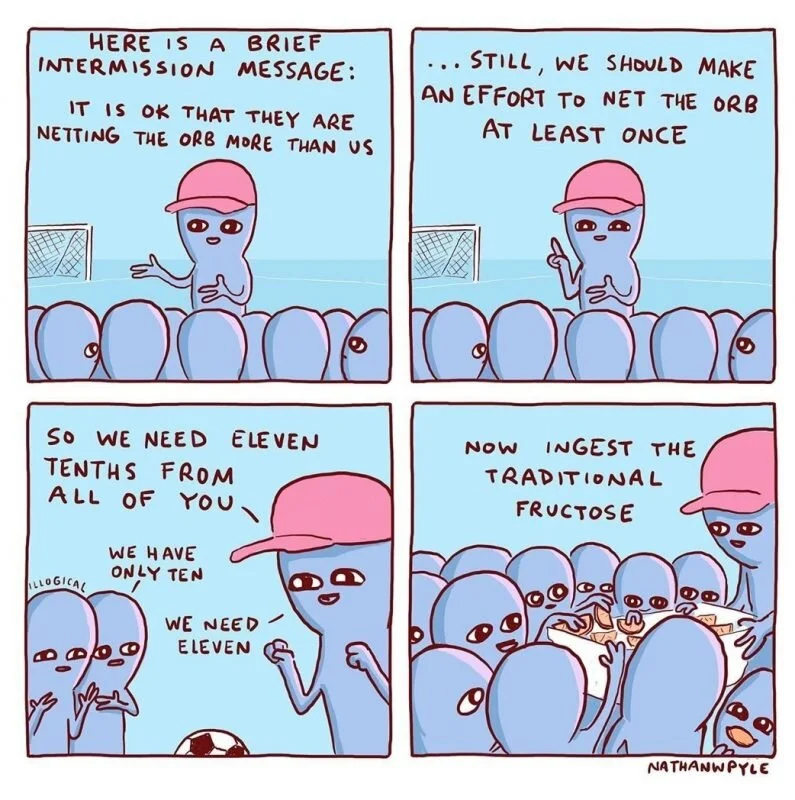The Lies We Tell
/I scored a goal!
I weaved around nearly stationary opponents, took careful aim, and rocketed the soccer ball past a too-slow goalkeeper.
Excited beyond measure, I ran to the sideline where my parents and all the other parents cheered my athletic prowess. My team got trophies and the requisite orange slices to celebrate our dominion. Except, it was a lie.
I had scored on the wrong goal. I was five, and I didn’t learn of this cruel deception until years later.
According to my parents, if that is who they really are, I was so excited after scoring that they didn’t have the heart to tell me the truth. That the reason no player stopped me from shooting was because they were on my own team, and couldn’t figure out why I was running in the wrong direction. In short order, they recruited all the other parents into their scheme, and everyone celebrated until all the kids were swept up in positive emotion.
All parents shield their children from the harsher realities of life because childhood is supposed to be a time where we’re unconcerned and taken care of. Eventually, we’re all exposed to the parts of life that are difficult for our young minds to process, and we seek refuge in the experience of our guardians. Unable to distract our growing minds from reality, new lies are employed: “things will be okay, everything happens for a reason, this is all part of a plan.” Our caretakers created a runway in our minds that allowed us to slowly experience hardship, but when examined objectively there is no certainty that everything will be okay or that the plan is a good one. Comfort isn’t the purpose of these lies. The purpose is teaching the next generation to craft stories.
The constant theme of all the years of therapy in which I’ve participated has been this:
You can change your story at any time.
It’s amazing how many times I’ve needed to be reminded of this fact. It was part of my coaching philosophy with nine and ten-year-olds. Regardless of the score, I preached that the score was always “0-0”. It was a lie, a fiction, a story that reinforced the central message I wanted to get across to these young minds in my care, which was: “focus on the moment, don’t allow the external to influence where you place your attention.”
I was, and still am, deeply proud of that group of twenty or so boys for the effort they put into practice and games. What dismayed my coaching staff and I was witnessing how the opposing coaches spoke to their players. Most would yell in anger, without purpose. Others would build a singular game up to stratospheric importance, only to watch their kids seize up in fear. Nearly all focused on what a player did poorly, rather than identify the positive intent behind a mistake made at game speed. When kids are told only negative stories that becomes how they frame all their stories.
Depression hijacked my internal story-telling apparatus. Fifteen years of therapy, six hospitalizations, electroconvulsive therapy, and a connected support group have helped me develop a rosier outlook, however I must always contend with the default negative setting of my inner-monologue. That is my battle with my depression, and I’m fortunate that I had parents who lied to me when it was appropriate. Let young kids enjoy their day in the sun, even though it’s really raining. There is plenty of time for them to come to terms with future downpours of emotion and personal strife. Use the early years to establish a bedrock of positivity so they can start telling stories that will inspire them to action in the midst of even the darkest turmoil.
Curious about positive ways to engage your child regarding their mental health in the age of COVID-19? Here are three websites that each include dozens of additional resources to help craft better stories between you and your child during the pandemic:




